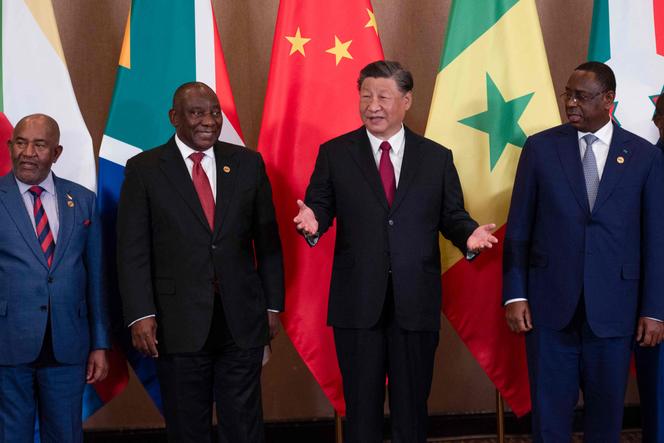


The 15th summit of the BRICS group (Brazil, Russia, India, China and South Africa) ended on Thursday, August 24 in Johannesburg, South Africa, with the significant expansion of the club of five major emerging nations representing 40% of the world's population. Iran, Argentina, Egypt, Saudi Arabia, the United Arab Emirates and Ethiopia will join the club on January 1, 2024. The BRICS countries aim to offer a counterpoint to an international order still dominated by the US and the West.
Chinese President Xi Jinping hailed "a historic enlargement" and predicted a "bright future for the BRICS." An arrest warrant has been issued against Vladimir Putin by the International Criminal Court (ICC), for crimes committed by Russia in Ukraine, so he was unable to attend, but in a videoconference address, the Russian president welcomed the "role and [growing] importance of BRICS in the world."
As decisions taken at BRICS summits require consensus, member countries negotiated hard until Wednesday evening to find a common position, particularly on the issue of admission criteria. The length of the talks is no doubt due to the difficulties the club of five has in overcoming the fault lines that run through it.
However, the criteria for new countries to join the group remain rather vague. "The conditions for joining the group are ambiguous, and the group maintains this ambiguity," said Hasni Abidi, a researcher at CERMAM, a think tank focusing on the Arab world and the Mediterranean, in a post on X (formerly Twitter). "The economic criterion is not the only one, as shown by the fact that countries such as Indonesia and Nigeria, whose economies are stronger than those of new members [such as] Ethiopia and Egypt, have not been admitted."
China and Russia were the strongest supporters of enlargement: Beijing, because the expansion is likely to increase China's influence in the "Global South" and Moscow, because it may mitigate Russia's current isolation.
India and Brazil were the most reluctant to accept new members. India, China's great rival, fears that enlargement that is too rapid and far-reaching would mainly benefit Beijing. Brazil fears that its influence would be diluted.
India, which intends to become one of the leading figures among developing countries, is pursuing an agenda that is the antithesis of Beijing's, which is obsessed with creating a political-economic alternative to the pre-eminence of Western countries. "We don't want to see the BRICS turn into an anti-Western platform that would primarily serve the interests of China and Russia," said an Indian diplomatic source.
You have 46.98% of this article left to read. The rest is for subscribers only.
